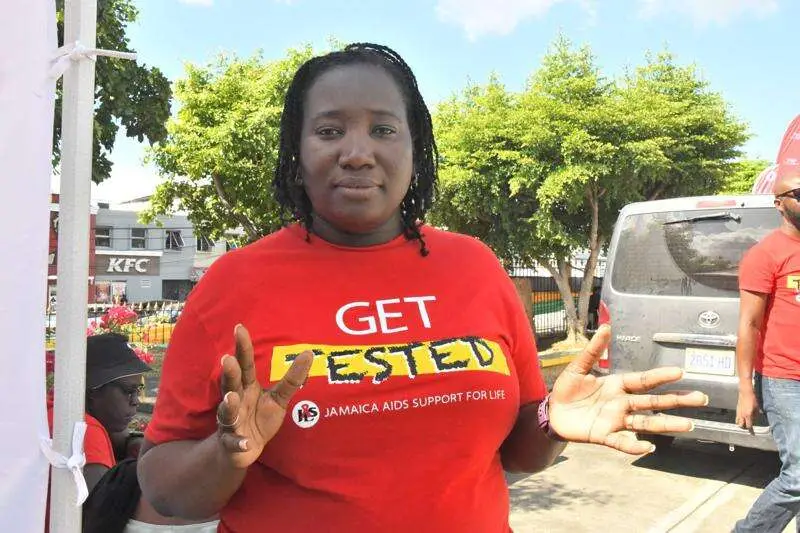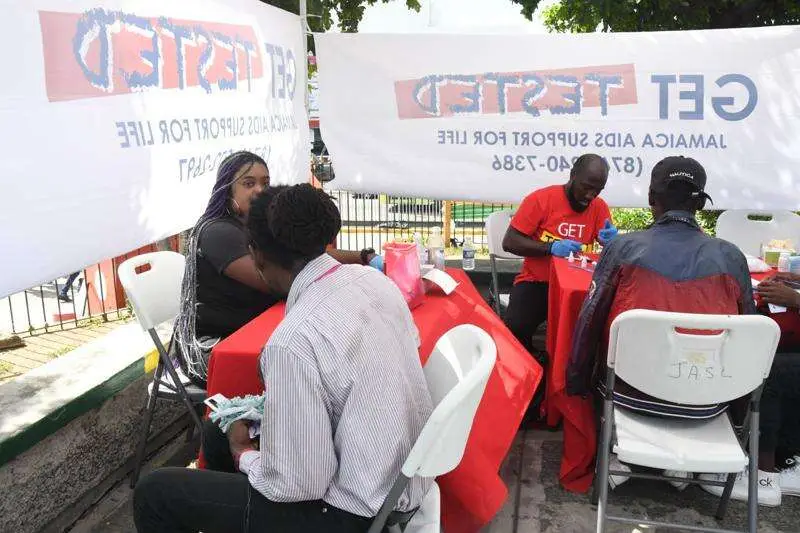
Rough tides for HIV stigma
AS the push to eliminate stigma against people living with HIV continues, there is an indication of less aggressive behaviour towards those with the disease.
According to Jamaica AIDS Support for Life (JASL) Executive Director Kandasi Levermore, the organisation is between a “rock and a hard place” because while there are some improvements in how discriminatory acts are committed, it is still a current issue.
“We are no longer seeing high incidents of discrimination because of someone’s HIV status in the forms of violence, family putting you out, and being totally alienated. It has become a little bit more sophisticated, but I think the impact on people is the same,” she said during a JASL HIV and syphilis testing series at Mandela Park, Half-Way-Tree on Wednesday in honour of World AIDS Day.
“It might not be that you are throwing stones at a person living with HIV anymore, but you are gossiping and talking and pointing them out, pointing out their children, really excluding them from spaces. We still see enough demonstration that tells us that there is a problem. We still have workplace discrimination, we still have landlord-tenant discrimination, we still see discrimination especially in the wider communities,” she told the Jamaica Observer.
Levermore stressed that more public sensitisation is needed for more Jamaicans to appropriately interact with those living with HIV.
“We have seen some improvement; I am not going to ignore that. But I think we have a far way to go and one thing we have to look at is ignorance. How much do we really know and then once we know how, we can use the information to inform how we act and how we treat people,” said Levermore.
“Whereas you hear people saying AIDS nah kill nobody, but yet still they treat people like pariah. We are still seeing discrimination but [as] for stigma, I don’t think it has moved on at all, in terms of how people look at it,” she added.
Last Sunday in an interview with the Observer, UNAIDS Regional Director Dr Richard Amenyah said self-stigma caused by a fear of discrimination has been forcing people, especially men, living with HIV/AIDS to an early grave.
“Up to 53 per cent of persons living with HIV experience self-stigma. They feel ashamed [and] worthless because they feel that when people get to know that they are HIV-positive, they have brought shame onto themselves and their families,” he had said.
Around 2.5 million people live with HIV in Latin America and the Caribbean. In 2021, approximately 120,000 people became infected with the virus and a further 35,000 lost their lives from AIDS-related causes.

























